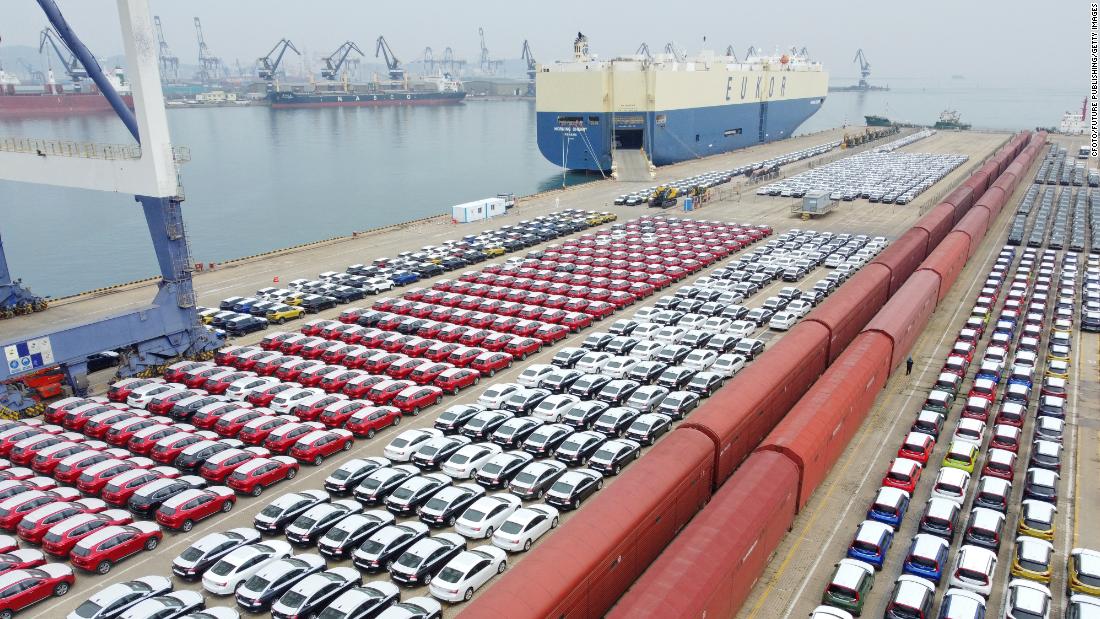“The economic effects of the war are spreading far and wide,” the organization said in its latest outlook, published Tuesday.
The IMF now expects the world economy to expand by 3.6% in both 2022 and 2023, a sharp deceleration from growth of 6.1% in 2021. The new forecasts reflect downgrades of 0.8 and 0.2 percentage points, respectively, from its January forecast.
The World Bank also slashed its global growth forecast this week. It now expects the world economy to expand by 3.2% in 2022.
The IMF
outlook assumes that the war remains confined to Ukraine, that further sanctions on Russia don’t target its
huge energy sector and the effects of the pandemic continue to fade.
Unsurprisingly, the conflict will hit
Ukraine and Russia the hardest. The IMF expects Ukraine’s economy to shrink 35% this year, while the West’s efforts to punish Russia are poised to cause its economy to contract by 8.5%.
But because the war has caused a spike in the price of energy and other commodities, worsening supply chain problems and feeding expectations for more persistent inflation, its effects will be felt almost everywhere.
“The war will severely set back the global recovery, slowing growth and increasing inflation even further,” the IMF said, emphasizing that the world economy had not fully recovered from the coronavirus pandemic when Russia invaded Ukraine in late February.
In Europe, which relies heavily on Russia to meet its energy needs, growth is now expected to slow to 2.8% in 2022, a downgrade of 1.1 percentage points versus January.
The United States is comparatively insulated. Yet weakness among its trading partners, as well as the Federal Reserve’s plans to quickly pull back pandemic-era support for the economy and raise interest rates, are weighing on the outlook. The IMF projects US growth of 3.7% in 2022 and 2.3% in 2023, down 0.3 percentage points since its last forecast.
Storm clouds are also
gathering over China, which the IMF now expects to log growth of 4.4% in 2022, well below Beijing’s official target of about 5.5%. The world’s second biggest economy is hampered by lockdowns aimed at stopping the spread of Covid-19, fallout from the war in Ukraine and problems in its property sector.
While the report observes that “global economic prospects have worsened significantly” since the start of the year, it does not predict a recession, which the IMF typically calls when growth falls to 2.5% or lower.
But the IMF also notes uncertainty “well beyond the normal range” surrounding its projections because of the unprecedented nature of the shock. And the risks of an even greater slowdown, combined with persistently high inflation, are climbing.
Goldman Sachs this week put the likelihood of a US recession at 15% in the next 12 months and 35% within the next 24 months. Japanese investment bank Nomura said Monday that the chances are rising that China falls into a recession this spring.
Much could depend on Russian President Vladimir Putin’s next move. If supplies of Russian natural gas to Germany were suddenly cut off, Europe’s biggest economy would
lose a shocking $238 billion in economic output over the next two years, the country’s top forecasters have said.
Europe could also go further in sanctioning Russian energy. French Finance Minister Bruno Le Maire said Tuesday that an embargo on Russian oil at a European Union level was in the works, adding that France’s President Emmanuel Macron wants such a move.
“The reason that we are not there yet isn’t because France does not wish it,” Le Maire told Europe 1 radio. “It is because there are still certain European partners who are hesitant.”

























